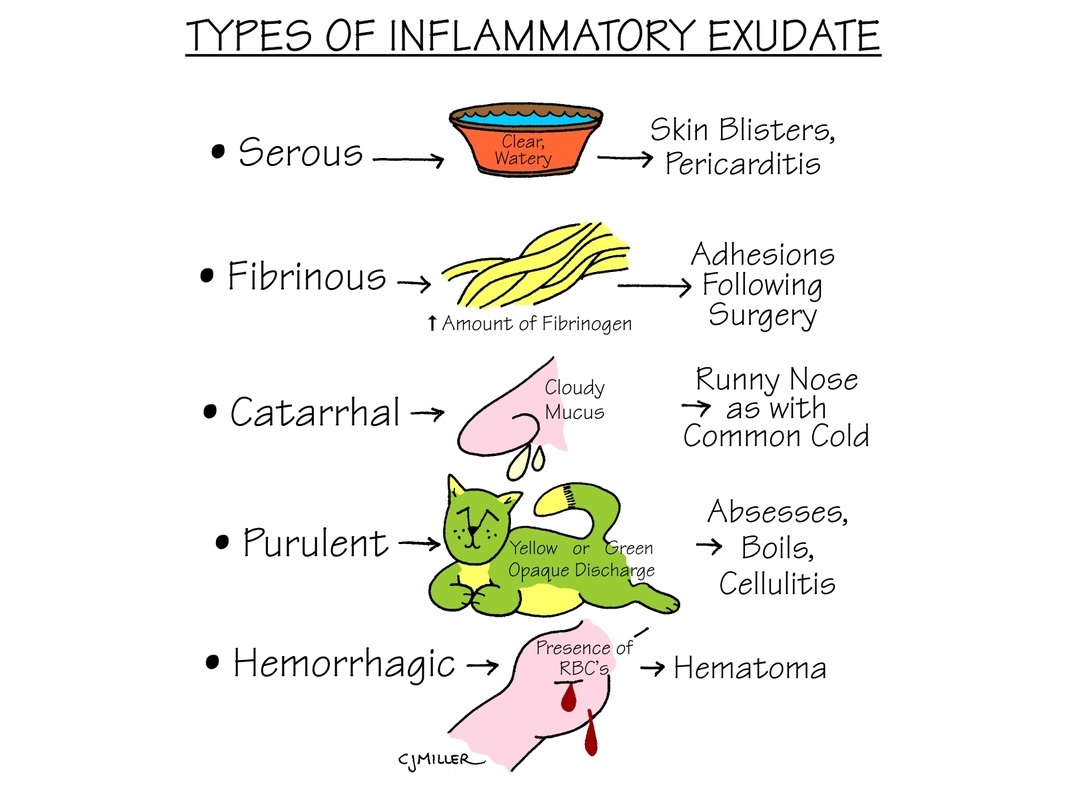Nursing Study: Types of Inflammatory Exudate
The products of inflammation are known as inflammatory exudates.
A Serous Exudate is one that is composed of fluid that has escaped from the vessels. It contains few cells, occurs in very slight inflammations, and tends to coagulate spontaneously.
This fluid differs from the non-inflammatory transudate in containing a greater amount of albumin, and, therefore, being of a greater specific gravity. The amount of exudate depends largely upon the vascularity of the part.
A Fibrinous Exudate is one in which there is more or less fibrin present, which probably helps restrict the escape of the infecting agents. It is formed by the action of fibrin ferment acting upon fibrinogen or fibrin-forming substances in the presence of calcium salts. This ferment is yielded probably to some extent by all the cells of the blood, but particularly by the leukocytes. When they die, the ferment is formed and the fibrinogen is converted into fibrin. When the leukocytes are increased in number, the amount of fibrin is usually greater.

Leave a Reply